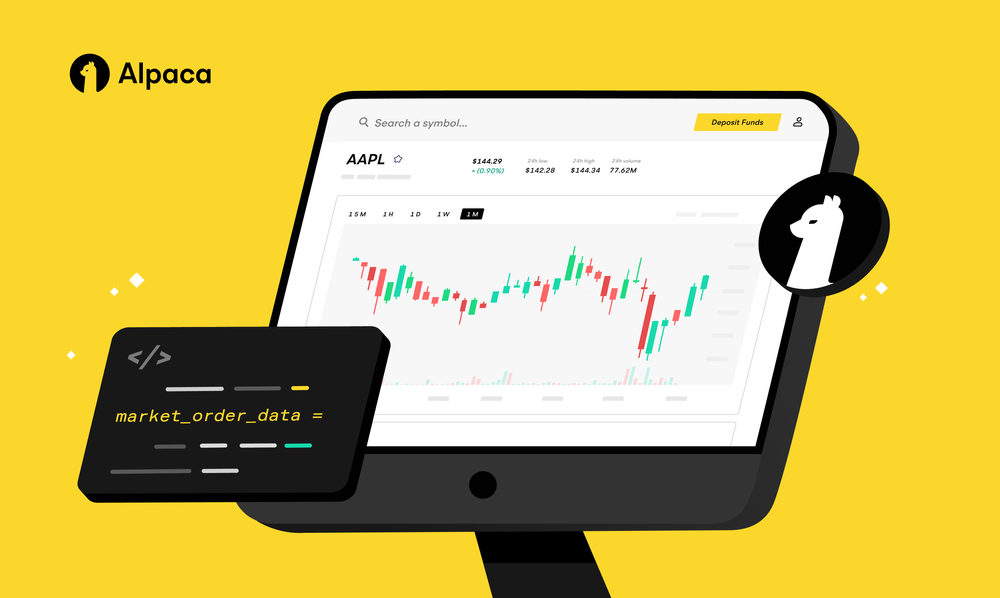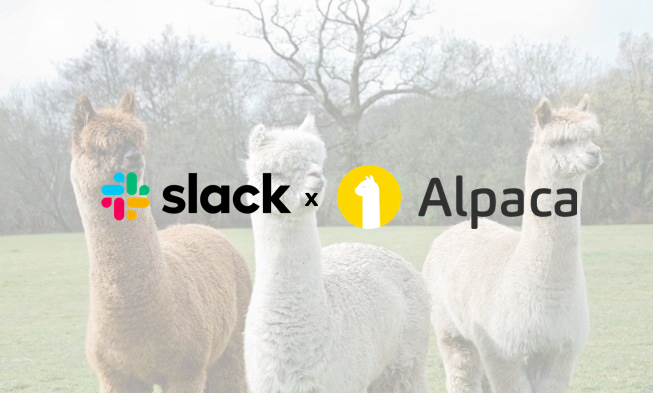
Here is an example code to be used in this post.

Quantopian — The Online Algo Trading Platform
Quantopian is one of the most popular online algo trading platforms and communities today. It provides the great backtesting environment where you can experiment with your idea, build algorithms and even participate in the contest, as well as share the idea and discuss it with smart people there.

The Newest Open Source Libraries for Quantopian Users
Today, I wanted to share our newest open source libraries for Quantopian users; pylivetrader and pipeline-live.
pylivetrader is a zipline API compatible trading framework in python which again focuses on live trading, with much less overhead and dependency problems. It is written from the ground up for live trading use cases, so it removes a lot of heavy lifting that zipline had to do such as price adjustment etc.
This means, you don’t need to build your data bundle to kick off your algorithm in live, but instead you can just start your live trading from the Quantopian algorithm source right away.
Pipeline API — the Core Piece of Quantopian Framework
Pipeline API is the core piece of Quantopian algorithm framework that allows easy stock selection based on the different metrics, much in a pythonic way, and this differentiates the platform from others. I found Pipeline is providing a tremendous value when it comes to trading wide range of universe. Unfortunately, it is not so easy for most people to use this great feature outside of the Quantopian platform.
pipeline-live is a python tool that allows you to do something similar anywhere so that you can do your research somewhere else as well as use it with existing python trading framework such as zipline-live or backtrader, including pylivetrader which I am introducing below. pipeline-live primarily uses IEX public API for pricing and basic fundamental information.
As you know, IEX provides market-wide volume data for daily OHLCV which makes it a perfect choice for pipeline usage. Since pipeline-live focuses on live trading use cases, it does not provide historical view unlike inside Quantopian, but the upside is it is fairly independent and easy to use. It is also very extensible so you can hook up with other paid data sources if you would find useful.
How to Convert Your Quantopian Algorithms to Run in Live Trading
We also put some practices together about how you could convert your Quantopian algorithms to run in live trading. You may want to take a look at these documents if you are interested in.
I also posted in Quantopian forum with the real example, and you may take a look at it, too.

Feel free to give me any feedback/questions/criticism. Happy to help you get started with live trading with these tools too.
And here is the example code migrated from the post above.
from pylivetrader.api import (
attach_pipeline,
date_rules,
time_rules,
order,
get_open_orders,
cancel_order,
pipeline_output,
schedule_function,
)
from pipeline_live.data.iex.pricing import USEquityPricing
from pipeline_live.data.iex.fundamentals import IEXCompany, IEXKeyStats
from pipeline_live.data.iex.factors import (
SimpleMovingAverage, AverageDollarVolume,
)
from pipeline_live.data.polygon.filters import (
IsPrimaryShareEmulation as IsPrimaryShare,
)
from pylivetrader.finance.execution import LimitOrder
from zipline.pipeline import Pipeline
import numpy as np # needed for NaN handling
import math # ceil and floor are useful for rounding
from itertools import cycle
import logbook
log = logbook.Logger('algo')
def record(*args, **kwargs):
print('args={}, kwargs={}'.format(args, kwargs))
def initialize(context):
context.MaxCandidates = 100
context.MaxBuyOrdersAtOnce = 30
context.MyLeastPrice = 3.00
context.MyMostPrice = 25.00
context.MyFireSalePrice = context.MyLeastPrice
context.MyFireSaleAge = 6
# over simplistic tracking of position age
context.age = {}
print(len(context.portfolio.positions))
# Rebalance
EveryThisManyMinutes = 10
TradingDayHours = 6.5
TradingDayMinutes = int(TradingDayHours * 60)
for minutez in range(
1,
TradingDayMinutes,
EveryThisManyMinutes
):
schedule_function(
my_rebalance,
date_rules.every_day(),
time_rules.market_open(
minutes=minutez))
# Prevent excessive logging of canceled orders at market close.
schedule_function(
cancel_open_orders,
date_rules.every_day(),
time_rules.market_close(
hours=0,
minutes=1))
# Record variables at the end of each day.
schedule_function(
my_record_vars,
date_rules.every_day(),
time_rules.market_close())
# Create our pipeline and attach it to our algorithm.
my_pipe = make_pipeline(context)
attach_pipeline(my_pipe, 'my_pipeline')
def make_pipeline(context):
"""
Create our pipeline.
"""
# Filter for primary share equities. IsPrimaryShare is a built-in filter.
primary_share = IsPrimaryShare()
# Not when-issued equities.
not_wi = ~IEXCompany.symbol.latest.endswith('.WI')
# Equities without LP in their name, .matches does a match using a regular
# expression
not_lp_name = ~IEXCompany.companyName.latest.matches('.* L[. ]?P.?$')
# Equities whose most recent Morningstar market cap is not null have
# fundamental data and therefore are not ETFs.
have_market_cap = IEXKeyStats.marketcap.latest >= 1
# At least a certain price
price = USEquityPricing.close.latest
AtLeastPrice = (price >= context.MyLeastPrice)
AtMostPrice = (price <= context.MyMostPrice)
# Filter for stocks that pass all of our previous filters.
tradeable_stocks = (
primary_share
& not_wi
& not_lp_name
& have_market_cap
& AtLeastPrice
& AtMostPrice
)
LowVar = 6
HighVar = 40
log.info(
'''
Algorithm initialized variables:
context.MaxCandidates %s
LowVar %s
HighVar %s''' %
(context.MaxCandidates, LowVar, HighVar))
# High dollar volume filter.
base_universe = AverageDollarVolume(
window_length=20,
mask=tradeable_stocks
).percentile_between(LowVar, HighVar)
# Short close price average.
ShortAvg = SimpleMovingAverage(
inputs=[USEquityPricing.close],
window_length=3,
mask=base_universe
)
# Long close price average.
LongAvg = SimpleMovingAverage(
inputs=[USEquityPricing.close],
window_length=45,
mask=base_universe
)
percent_difference = (ShortAvg - LongAvg) / LongAvg
# Filter to select securities to long.
stocks_worst = percent_difference.bottom(context.MaxCandidates)
securities_to_trade = (stocks_worst)
return Pipeline(
columns={
'stocks_worst': stocks_worst
},
screen=(securities_to_trade),
)
def my_compute_weights(context):
"""
Compute ordering weights.
"""
# Compute even target weights for our long positions and short positions.
stocks_worst_weight = 1.00 / len(context.stocks_worst)
return stocks_worst_weight
def before_trading_start(context, data):
# Gets our pipeline output every day.
context.output = pipeline_output('my_pipeline')
context.stocks_worst = context.output[
context.output['stocks_worst']].index.tolist()
context.stocks_worst_weight = my_compute_weights(context)
context.MyCandidate = cycle(context.stocks_worst)
context.LowestPrice = context.MyLeastPrice # reset beginning of day
print(len(context.portfolio.positions))
for stock in context.portfolio.positions:
CurrPrice = float(data.current([stock], 'price'))
if CurrPrice < context.LowestPrice:
context.LowestPrice = CurrPrice
if stock in context.age:
context.age[stock] += 1
else:
context.age[stock] = 1
for stock in context.age:
if stock not in context.portfolio.positions:
context.age[stock] = 0
message = 'stock.symbol: {symbol} : age: {age}'
log.info(message.format(symbol=stock.symbol, age=context.age[stock]))
pass
def my_rebalance(context, data):
BuyFactor = .99
SellFactor = 1.01
cash = context.portfolio.cash
cancel_open_buy_orders(context, data)
# Order sell at profit target in hope that somebody actually buys it
for stock in context.portfolio.positions:
if not get_open_orders(stock):
StockShares = context.portfolio.positions[stock].amount
CurrPrice = float(data.current([stock], 'price'))
CostBasis = float(context.portfolio.positions[stock].cost_basis)
SellPrice = float(
make_div_by_05(
CostBasis *
SellFactor,
buy=False))
if np.isnan(SellPrice):
pass # probably best to wait until nan goes away
elif (stock in context.age and context.age[stock] == 1):
pass
elif (
stock in context.age
and context.MyFireSaleAge <= context.age[stock]
and (
context.MyFireSalePrice > CurrPrice
or CostBasis > CurrPrice
)
):
if (stock in context.age and context.age[stock] < 2):
pass
elif stock not in context.age:
context.age[stock] = 1
else:
SellPrice = float(
make_div_by_05(.95 * CurrPrice, buy=False))
order(stock, -StockShares,
style=LimitOrder(SellPrice)
)
else:
if (stock in context.age and context.age[stock] < 2):
pass
elif stock not in context.age:
context.age[stock] = 1
else:
order(stock, -StockShares,
style=LimitOrder(SellPrice)
)
WeightThisBuyOrder = float(1.00 / context.MaxBuyOrdersAtOnce)
for ThisBuyOrder in range(context.MaxBuyOrdersAtOnce):
stock = next(context.MyCandidate)
PH = data.history([stock], 'price', 20, '1d')
PH_Avg = float(PH.mean())
CurrPrice = float(data.current([stock], 'price'))
if np.isnan(CurrPrice):
pass # probably best to wait until nan goes away
else:
if CurrPrice > float(1.25 * PH_Avg):
BuyPrice = float(CurrPrice)
else:
BuyPrice = float(CurrPrice * BuyFactor)
BuyPrice = float(make_div_by_05(BuyPrice, buy=True))
StockShares = int(WeightThisBuyOrder * cash / BuyPrice)
order(stock, StockShares,
style=LimitOrder(BuyPrice)
)
# if cents not divisible by .05, round down if buy, round up if sell
def make_div_by_05(s, buy=False):
s *= 20.00
s = math.floor(s) if buy else math.ceil(s)
s /= 20.00
return s
def my_record_vars(context, data):
"""
Record variables at the end of each day.
"""
# Record our variables.
record(leverage=context.account.leverage)
record(positions=len(context.portfolio.positions))
if 0 < len(context.age):
MaxAge = context.age[max(
list(context.age.keys()), key=(lambda k: context.age[k]))]
print(MaxAge)
record(MaxAge=MaxAge)
record(LowestPrice=context.LowestPrice)
def log_open_order(StockToLog):
oo = get_open_orders()
if len(oo) == 0:
return
for stock, orders in oo.items():
if stock == StockToLog:
for o in orders:
message = 'Found open order for {amount} shares in {stock}'
log.info(message.format(amount=o.amount, stock=stock))
def log_open_orders():
oo = get_open_orders()
if len(oo) == 0:
return
for stock, orders in oo.items():
for o in orders:
message = 'Found open order for {amount} shares in {stock}'
log.info(message.format(amount=o.amount, stock=stock))
def cancel_open_buy_orders(context, data):
oo = get_open_orders()
if len(oo) == 0:
return
for stock, orders in oo.items():
for o in orders:
# message = 'Canceling order of {amount} shares in {stock}'
# log.info(message.format(amount=o.amount, stock=stock))
if 0 < o.amount: # it is a buy order
cancel_order(o)
def cancel_open_orders(context, data):
oo = get_open_orders()
if len(oo) == 0:
return
for stock, orders in oo.items():
for o in orders:
# message = 'Canceling order of {amount} shares in {stock}'
# log.info(message.format(amount=o.amount, stock=stock))
cancel_order(o)
# This is the every minute stuff
def handle_data(context, data):
pass



